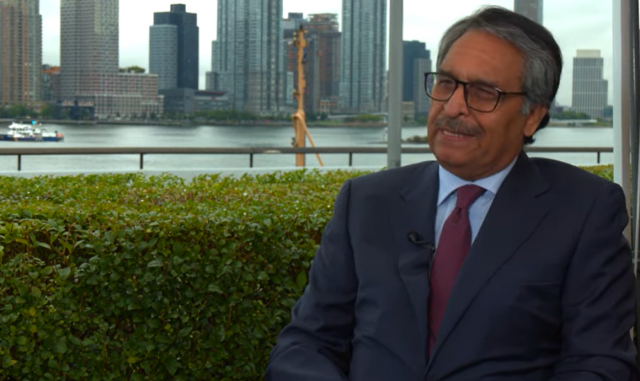'No change' in country's stance on Israel, says foreign minister
Pakistan will keep its national interests on priority, says Jillani

Caretaker Foreign Minister Jalil Abbas Jilani on Thursday asserted that there is "no change" regarding the country's stance on Israel and it will remain the same as it has in the past.
"There is no change in our policy regarding Israel," said the interim foreign minister and added that Islamabad's policy is linked to the rights of the Palestinians.
There have been concerns in Pakistan that recognising the Israeli state without a permanent solution to the Palestinian conflict would only undermine the country's case on the longstanding issue of Jammu and Kashmir.
The country also does not maintain diplomatic ties with Tel Aviv and adheres to the “two-state solution in accordance with the relevant United Nations and OIC resolutions as well as international law, with pre-1967 borders and Al-Quds Al-Sharif (Jerusalem) as the capital of Palestine”.
This is the second statement by Jilani regarding ties with Israel during the past week. Earlier, the foreign minister maintained that Pakistan's decision to recognise Israel would be determined by its own national interests and those of the Palestinians.
Foreign Minister Jilani was responding to claims by Israeli Foreign Minister Eli Cohen that six or seven Muslim countries would make peace with the Jewish state if his country’s deal with Saudi Arabia went through.
Speaking to Israel's KAN News immediately after Prime Minister Benjamin Netanyahu's speech at the UNGA, in which he touted a "new Middle East" where Israel and Saudi Arabia enjoyed diplomatic ties, Cohen said that "peace with Saudi Arabia means peace with the greater Muslim world”.
Cohen did not mention any name, except Saudi Arabia, but added, in response to a question, that those countries were located in Africa and Asia. Cohen later said that only some had been directly in touch with him. Foreign Minister Jilani, however, said he did not meet his Israeli counterpart.
Addressing the media today following his arrival back in the country after attending this year's UNGA, Jillani said Pakistan will keep its "national interests on priority” whenever a decision is taken on the topic.
He reiterated that both he and PM Kakar had clarified their stance during their speeches at the UNGA. “Palestinians must be given independent state on pre-1967 borders and Pakistan reiterated this stance in all relevant meetings,” he said.
The foreign minister maintained that the issue is very similar to the right to self-determination of Kashmiris. "This is basically our national interest."
Observers believe that any agreement between Israel and Saudi Arabia, with Riyadh being the primary champion of the Palestinian cause for decades, would put pressure on other countries, including Pakistan, to reconsider their policies.
Islamabad has always resisted pressure to recognise Israel, though in 2005 the then-Pakistani and Israeli foreign ministers held a landmark meeting in Turkey. But the process couldn't move forward as there had always been strong opposition to the diplomatic ties with Israel without resolution of the Palestinian issue.



















COMMENTS
Comments are moderated and generally will be posted if they are on-topic and not abusive.
For more information, please see our Comments FAQ